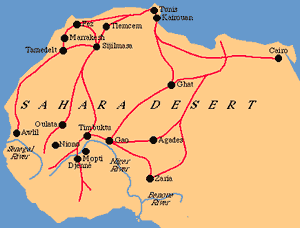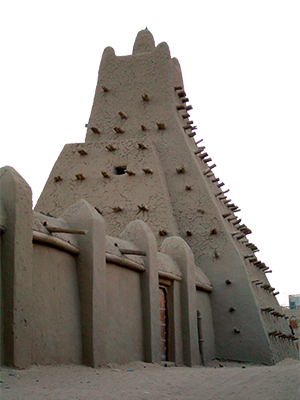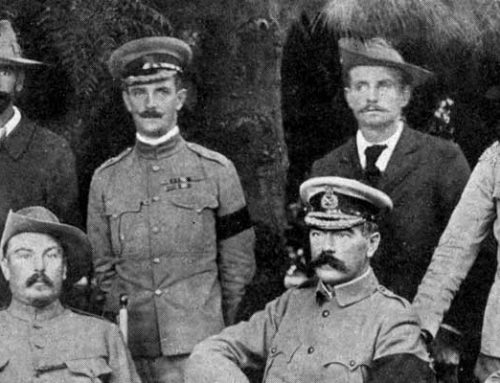Many civilizations that flourished in ancient West Africa were based on trade, so successful West African leaders tended to be peacemakers rather than warriors. Caravans from North Africa crossed the Sahara beginning in the seventh century of the Common Era. Traders exchanged gold for something the West Africans prized even more: salt. Salt was used as a flavoring, a food preservative, and a means of retaining body moisture.
Berbers from North Africa were the first traders to trek across the Sahara in significant numbers. They brought their strict Islamic faith across the desert and converted many of the merchants of West Africa to Islam, though most of the ordinary people retained their traditional beliefs. The ancient West Africans, like Native Americans and Sumerians, believed that many gods existed in nature and did not accept the Muslim belief in one God.

West_African_Trade_Routes
West African trade routes
West African traders who converted to Islam encountered many economic advantages. Literacy spread because belief in Islam encourages Muslims to learn the Quran. Further, the language of the Quran — Arabic — became a common language of merchants and traders. Strict Muslims follow Islamic law. It is easier to solve disputes when both parties agree on the laws. Conversion to Islam also opened up new trading possibilities across North Africa and Arabia. Many Muslims make a holy pilgrimage to Mecca. The traders met new people and discovered different cultures on their journey. The 40% of present-day sub-Saharan Africans who practice Islam are a legacy of those early traders.
Resources
Download this lesson as Microsoft Word file or as an Adobe Acrobat file.
Mr. Donn has an excellent website that includes a section on Africa.

Sankore Madrasa
The Sankore Madrasa in Timbuktu, Mali has been a center of Islamic scholarship for over one thousand years.




